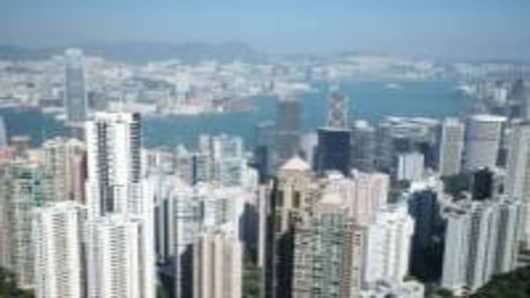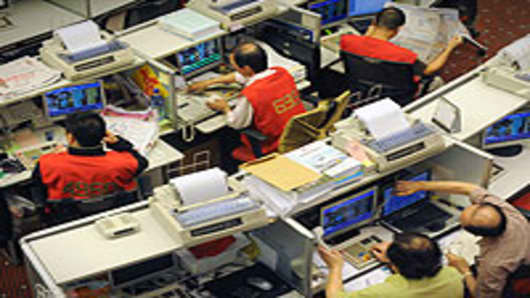The Hang Seng index , the city’s stock benchmark, has raced up 1,700 points, or 8 percent, since the start of this month alone, bringing Hong Kong stocks to two-year highs. That spurt came after the U.S. Federal Reserve unveiled its plan to pump US$600 billion into the economy in its second round of quantitative easing– dubbed QE2. The property market has been increasingly showing little of its traditional lag in following stocks, and is likely to show a jump higher, too.
To stave off a possible bubble, the Hong Kong Monetary Authority, the de facto central bank, recently hiked minimum downpayments on any investment property and on primary homes worth more than HK$12 million, to 40 percent, from 30 percent. It has also barred the “flipping” of apartments before they’re completed. Property-market watchers anticipate further steps as the administration does what it can to prevent prices from getting out of control.
“I wouldn’t be surprised to see Hong Kong go to a 50 percent downpayment,” Martin said. The government has also pledged to ensure a steady supply of land for auction – but it will take several years for those to come to market.
Time to Forget the Crash of 1997
If Hong Kong is building to a bubble, then, it still has some way to grow. Fewer than 10,000 new homes came on the market in both 2008 and 2009, the smallest amount of supply in more than a decade. This year’s tally will approach 15,000, but new units are estimated at around 11,000 in the following year.
Strong demand, tight supply and cheap money all indicate the property run is likely to continue, unless there is heavy-handed government intervention — something Chief Executive Donald Tsang promised in his October policy address to avoid. That led almost immediately to another boom in speculation.
“The government has been terrible at the task of managing expectations,” Wong said. “It is confusing for them to come up with the wording that the government is trying to not to interfere with the property market. It is a case of miscommunication.”
But it is equally at the back of any government official’s mind that the previous bubble burst explosively in 1997 when Tsang’s predecessor, Tung Chee Hwa, promised to ensure new supply of 85,000 apartments per year.
At some point, overbuilding will likely hit Hong Kong. That combined with higher borrowing costs will likely be the factors to halt Hong Kong’s property boom.
“Developers always build too much near the top of the cycle. So when the bubble pops, it just exacerbates the effect,” Martin said. “Inevitably that’s going to happen. But that’s probably five-plus years down the road.”
Credit Suisse on Monday put out a report on the Hong Kong property sector entitled “Time to forget 1997.” The investment bank forecasts a 30 percent increase in residential prices between now and the end of 2011, which would bring the overall property market 8 percent above its 1997 peak. But the Hong Kong economy is much stronger now than it was in 1997, the report states.
Asset-price inflation is likely to be the key theme next year, thanks to the weakening U.S. and Hong Kong dollars. The bank identifies developers Sino Land and Sun Hung Kai Properties and the brokerage’s parent Midland Holdings as its top picks to play those trends.
“We agree that this is probably going to be the last phase of the asset bubble-building phase,” research analysts Cusson Leung and Joyce Kwock wrote. “Given the relatively low level of leverage in the system, we believe the property market still has a long way to go.”



